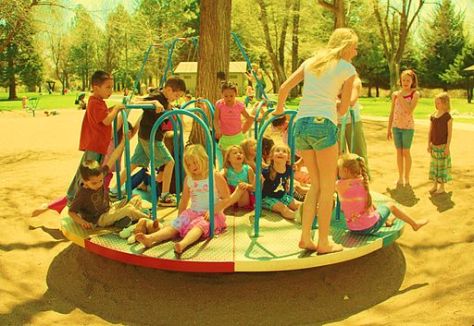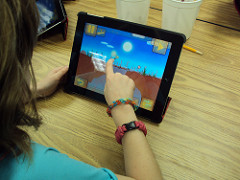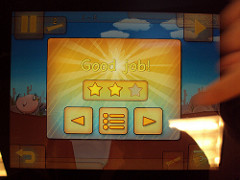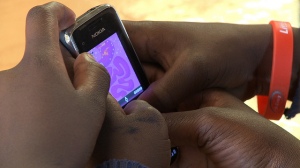We frequently hear parents crib about how little their kids can do. They can’t cook, can’t clean, can’t find things on their own, and on and on. We talk like we were more independent. We were, but the reason was not us. It was all our parents, who did fewer things for us. Not in a bad way, but just as in a different way of life. Parents didn’t buy dragon games for kids. They were happy telling dragon tales with vivid imagination. We weren’t dropped and picked up from everywhere. We made our own way frequently. There was a lot of walking on our own. In such situations, we naturally became more observant and self reliant.

By D. Sharon Pruitt from Hill Air Force Base, Utah, USA [CC BY 2.0 (https://creativecommons.org/licenses/by/2.0)%5D, via Wikimedia Commons
Our parents rarely mollycoddled us. Some parents did not have the time what with having kids and work. Others had no help at home which meant a tremendous amount of work. One other thing was not being tied into the parenting network. Not having a social media presence meant, parents were not plugged into each other’s life. Kids were brought up differently. The emphasis was on one keeping the kids occupied, educating and feeding them. Our childhood builds us a bank of memories. Do our memories define us? Something to think about I feel.
Some life skills to make your kids independent
Childhood is also that time when our milieu lays the foundation of our lives. Get the kids to be a part of the household to anchor them with a sense of belongingness. Build in them the life skills for a wonderful future.
Here’s a list to add to your kids’ life skills:
- Get the kids to cook or help around in the kitchen.
- Take help from them in your shopping.
- Make it a habit for them to come and meet older relatives.
- Get kids to play on their own.
- Make putting away toys a part of play.
- Encourage them to share.
- Coax them to share devices with siblings.
- Take their help while clearing the table or throwing out leftovers to increase their awareness about food wastage.
- Schedule age appropriate chores like stacking dishes, loading the dishwasher, laying the table etc.
- Don’t help the kids unless you feel they might be burdened.
- Don’t make studying and tests the be all and end all of their young lives.
- Just help kids peripherally with their home work; this helps kids think for themselves.
- Encourage them to help others in small ways.
- Let the kids take small decisions about food, clothes, chores they want to do etc.
- Encourage the kids to share chores like picking up vegetables at the store, shredding lettuce, taking the trash out, switching off lights etc.
- Get the kids to make their own bed.
- Fold laundry.
- Loading the dishwasher.
- Wash windows.
- Clean their bathroom age appropriately.
- Iron clothes.
- Play games where they learn to lose gracefully.
- Teach them to talk about things and to listen to others.
- Help them understand the importance of empathy.
- Most importantly emphasize the fact that life is a series of events, some good and some not so good.
Sharing chores around the house gives kids a sense of belonging and it instills in them a sense of responsibility.
Always remember to pat your child on the back for chores done without slipping up. Consistency is important for everyday living. Kids will take time to get things right and that’s natural too. In the beginning help them through the chore. Kids are happy helping parents. Don’t kill this streak with very high standards. Enjoy your kids on their way to productive adulthood.












